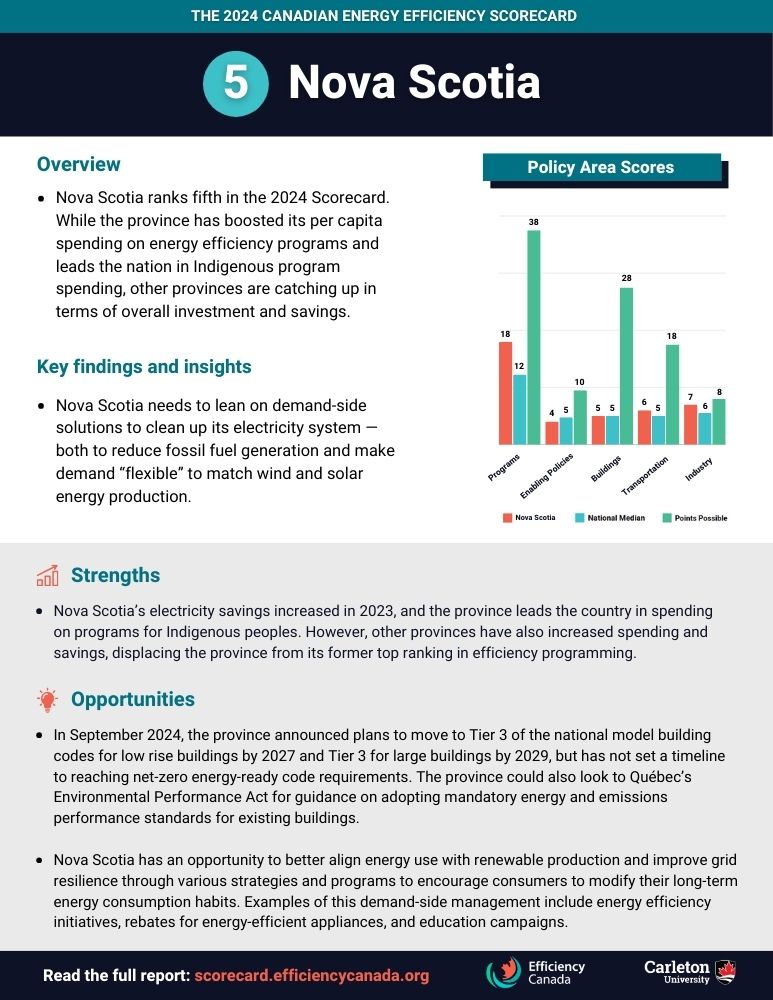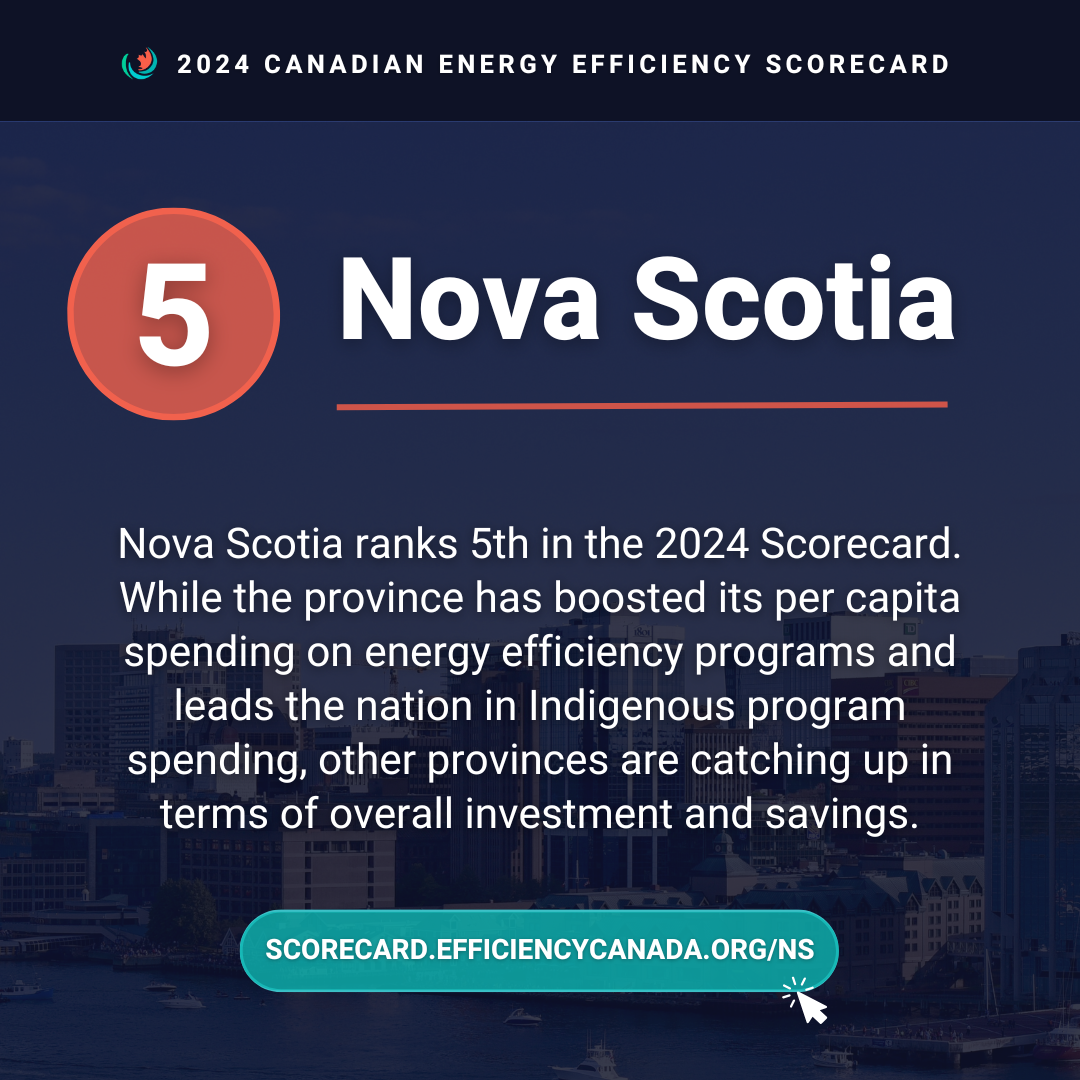Canadian Energy Efficiency Scorecard:
Provinces and Territories
Nova Scotia
Nova Scotia ranks fifth in the 2024 Scorecard. While the province has boosted its per capita spending on energy efficiency programs and leads the nation in Indigenous program spending, other provinces are catching up in terms of overall investment and savings.
Key findings and insights
Nova Scotia needs to lean on demand-side solutions to clean up its electricity system — both to reduce fossil fuel generation and make demand “flexible” to match wind and solar energy production.
Strengths
Nova Scotia’s electricity savings increased in 2023, and the province leads the country in spending on programs for Indigenous peoples.
However, other provinces have also increased spending and savings, displacing the province from its former top ranking in efficiency programming.
Opportunities
In September 2024, the province announced plans to move to Tier 3 of the national model building codes for low rise buildings by 2027 and Tier 3 for large buildings by 2029, but has not set a timeline to reaching net-zero energy-ready code requirements.
The province could also look to Québec’s Environmental Performance Act for guidance on adopting mandatory energy and emissions performance standards for existing buildings.
Nova Scotia has an opportunity to better align energy use with renewable production and improve grid resilience through various strategies and programs to encourage consumers to modify their long-term energy consumption habits.
Examples of this demand-side management include energy efficiency initiatives, rebates for energy-efficient appliances, and education campaigns.
Policy Area Scores
Nova Scotia
National median
Points possible
Programs
18 points
12 points
38 points
Enabling policies
4 points
5 points
10 points
Buildings
5 points
5 points
28 points
Transportation
6 points
5 points
18 points
Industry
7 points
6 points
8 points
* Points are rounded to the nearest whole number. Totals might not sum due to rounding.
2024 Scorecard ranking

British Columbia

Prince Edward Island

Québec

New Brunswick

Nova Scotia

Ontario

Yukon

Manitoba

Saskatchewan

Newfoundland and Labrador

Alberta

Nova Scotia
40/100 Points
Prince Edward Island
45/100 Points
New Brunswick
43/100 Points
Newfoundland and Labrador
14/100 Points
Québec
45/100 Points
Ontario
33/100 Points
Manitoba
30/100 Points
Saskatchewan
16/100 Points
Alberta
8/100 Points
British Columbia
54/100 Points
Yukon
32/100 Points
2024 Scorecard ranking

British Columbia
54/100 Points

Prince Edward Island
45/100 Points

Québec
45/100 Points

New Brunswick
43/100 Points

Nova Scotia
40/100 Points

Ontario
33/100 Points

Yukon
32/100 Points

Manitoba
30/100 Points

Saskatchewan
16/100 Points

Newfoundland and Labrador
14/100 Points

Alberta
8/100 Points



